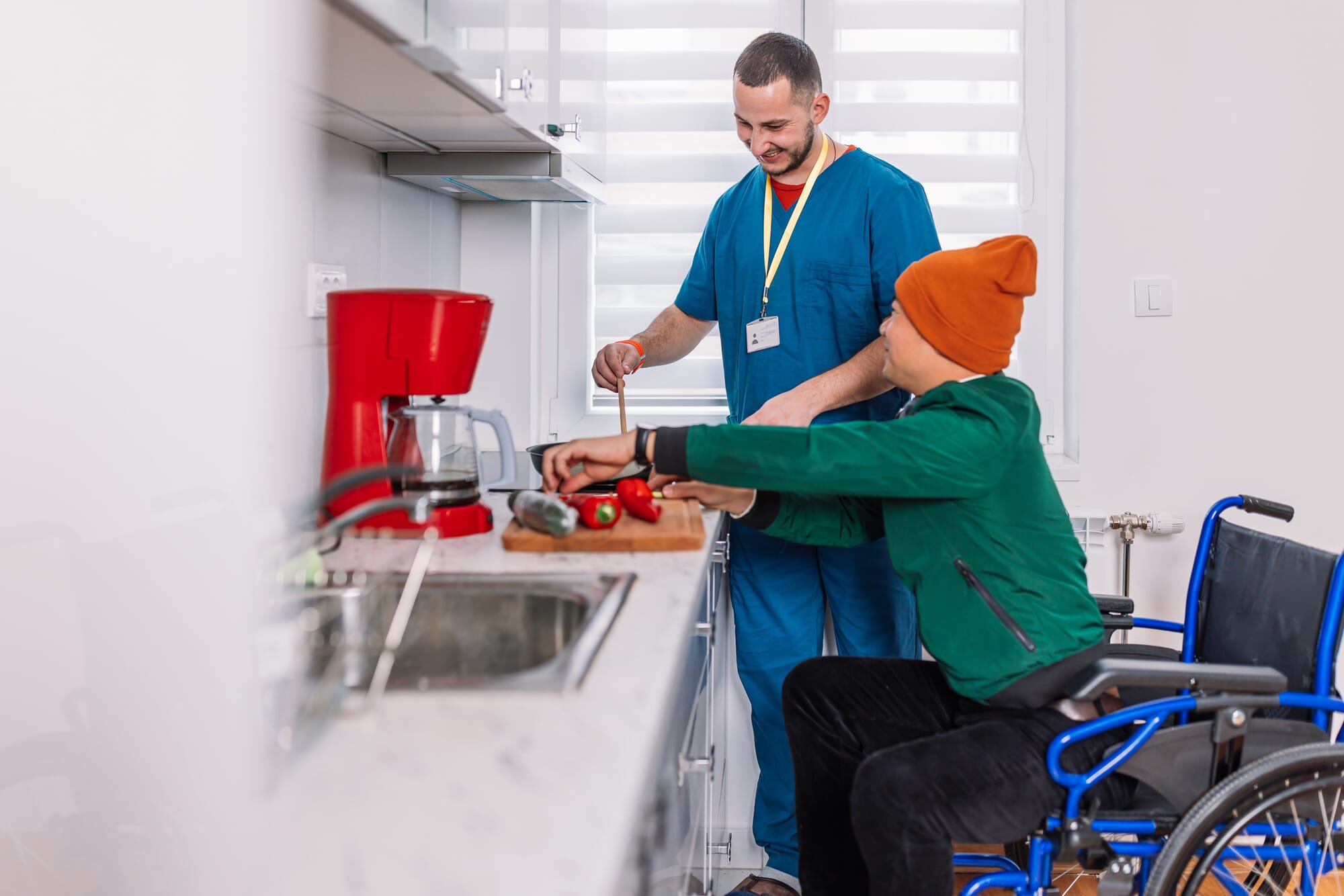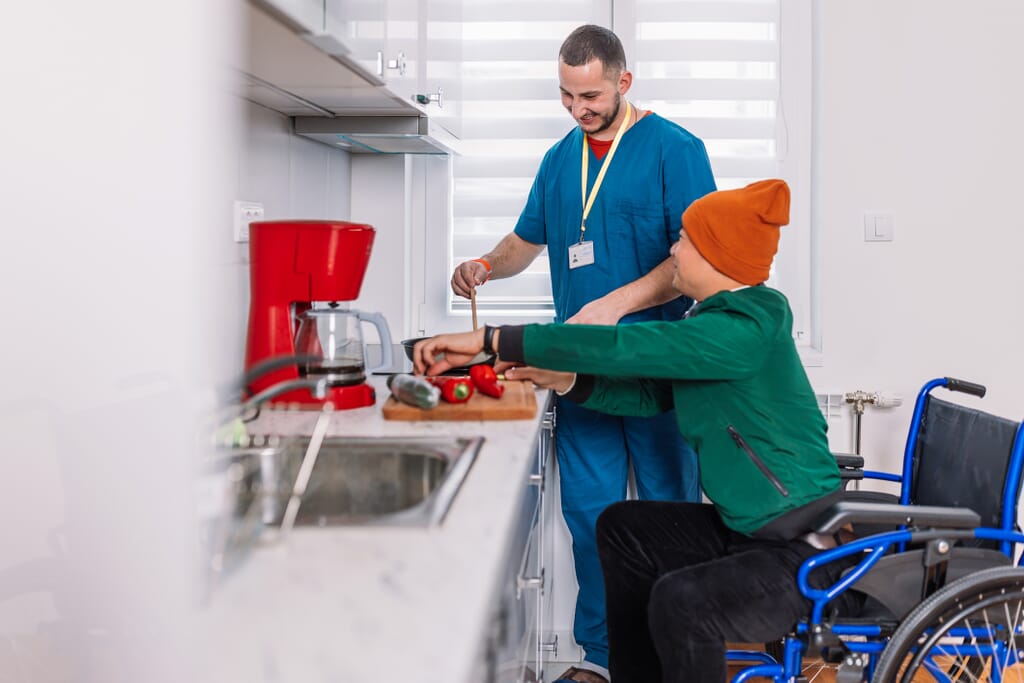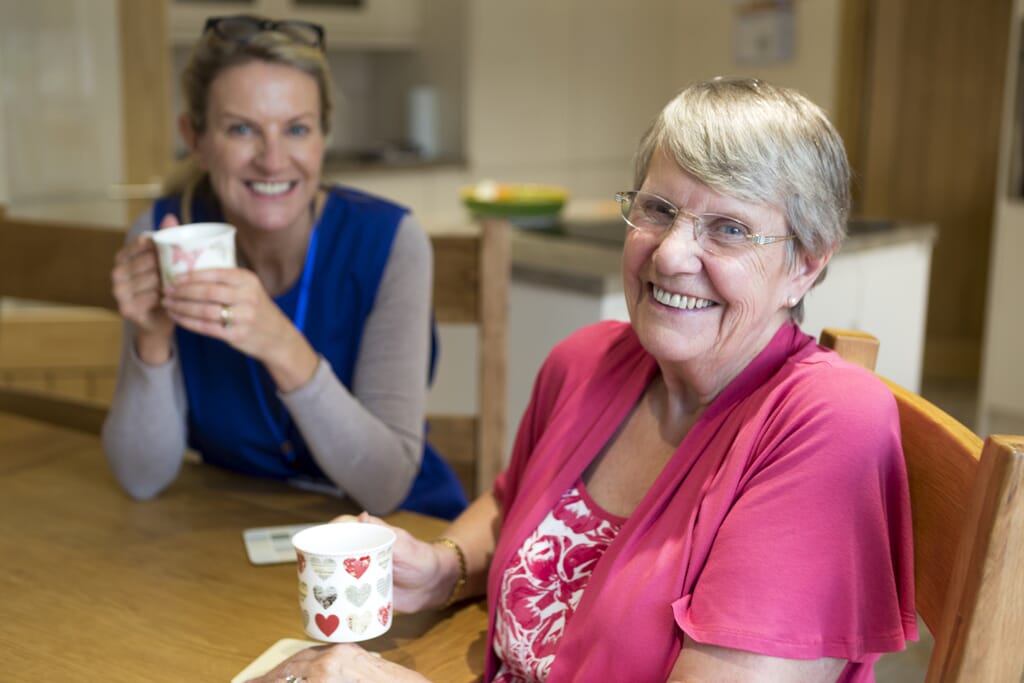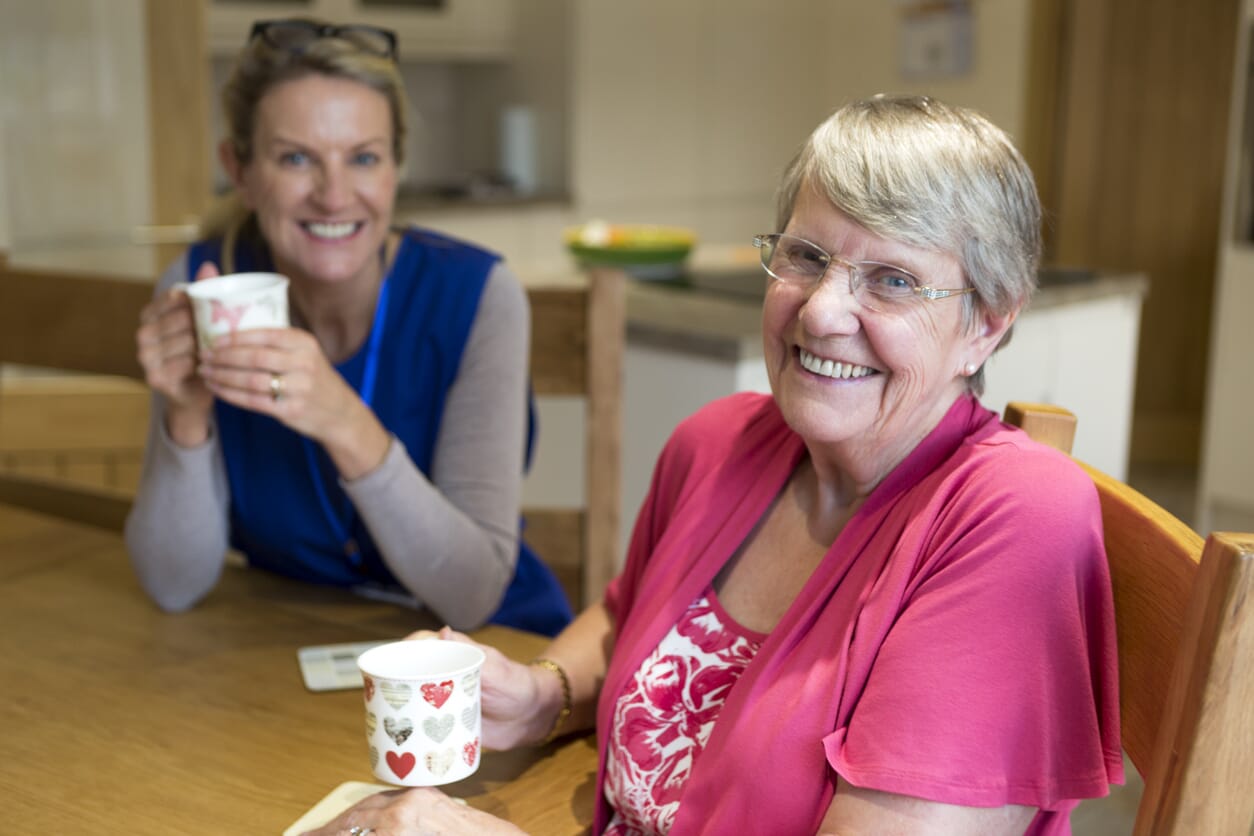Call: 01242 383 773 Or Email us

live-in care
What are the duties of a home carer?

A home carer is a lifeline for many who need assistance with daily living activities. This article highlights home carers’ responsibilities in providing invaluable support to individuals.
Understanding the Role of a Home Carer
A home carer’s primary goal is to ensure their patient or client leads a life that’s as fulfilling and independent as possible. This involves creating a supportive environment tailored to the needs of the individual. Your care team will help to put together a comprehensive care plan which your carer will follow. This could be helping with personal care day to day, to assisting with feeding or medication.
Household Assistance: More than Just Care
Many think a carer focuses on the physical health of their patients, but this is the case. One of the fundamental responsibilities of a home carer is providing help with household duties. This could mean taking on tasks such as changing bedding, preparing meals, or running errands. Ensuring a clean, comfortable, and organised living space contributes to the well-being of those in care.
Different Types of Home Care
Live-In Care
Live-in care is a type of home care where the carer lives within the client’s home for varying lengths of time. This model is ideal for individuals requiring continuous support but who wish to remain in the comfort of their own homes. It is important to understand who can benefit from live-in care.
Care At Home
Unlike live-in care, care at home involves a carer visiting the individual’s home for several hours each day or week. This care involves tasks like personal care, administering medications, meal preparation, and offering emotional support and companionship.
Companionship Care
Companionship care offers a different section of support from other home care. As people become isolated, whether through illness or the loss of loved ones having someone to help support them and be there emotionally can make a tremendous change to that person’s life.
Companionship care help emotionally supports a patient on an ongoing basis or through one-off events such as attending and appointment or going on holiday.
The Integral Role of a Care Plan
The type of care an individual receives often hinges on a detailed care plan. This plan outlines the person’s physical, emotional, and mental health needs, specifying the support required to meet these needs. As these needs change over time, so does the care plan, ensuring personalised and adaptive care.
The Role of a Care Assistant
A care assistant, often synonymous with a home carer, forms a significant part of the person’s care team. They assist with daily living tasks, empowering service users to live as independently as possible. While previous experience in social care can be an asset, it’s not a prerequisite. What matters most is a respectful and caring attitude towards their duties.
Emotional Support: An Essential Aspect of Care
A home carer’s role extends beyond physical support, encapsulating emotional support too. Being a listening ear, providing reassurance, and alleviating feelings of loneliness or isolation are all part of the job.
Administering Medications
Another critical duty that may fall on a home carer is properly administering medications. Ensuring medication is taken at the right time and in the correct dosage is crucial for the individual’s health and well-being.
An alternative to in-home care
There are a few alternatives to in-home care. These can be care homes or supported living.
Care homes are perfect for those with complex issues or who need around-the-clock supervision. Supported living offers care for those who require care but also want independence; this is great for younger people who are just finding their feet in the world and require a helping hand throughout their day.
A home carer’s role is integral in providing a support system for individuals who need help with their daily living activities. They’re often the driving force that allows individuals to maintain their independence and quality of life at home, ensuring that services meet the individual’s evolving needs. If you are looking for home care, Safehands can help. Contact our friendly and knowledgeable team on or via email, and we will guide you on the right care for you or your loved ones.
If you feel a home carer is the right choice for you or a loved one, we at Safehands Healthcare can help with the process. Call us on 01242 505415 or email us at enquiry@safehandshealthcare.co.uk, and a dedicated team member will help you through the process.




